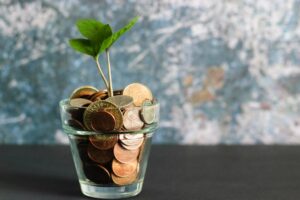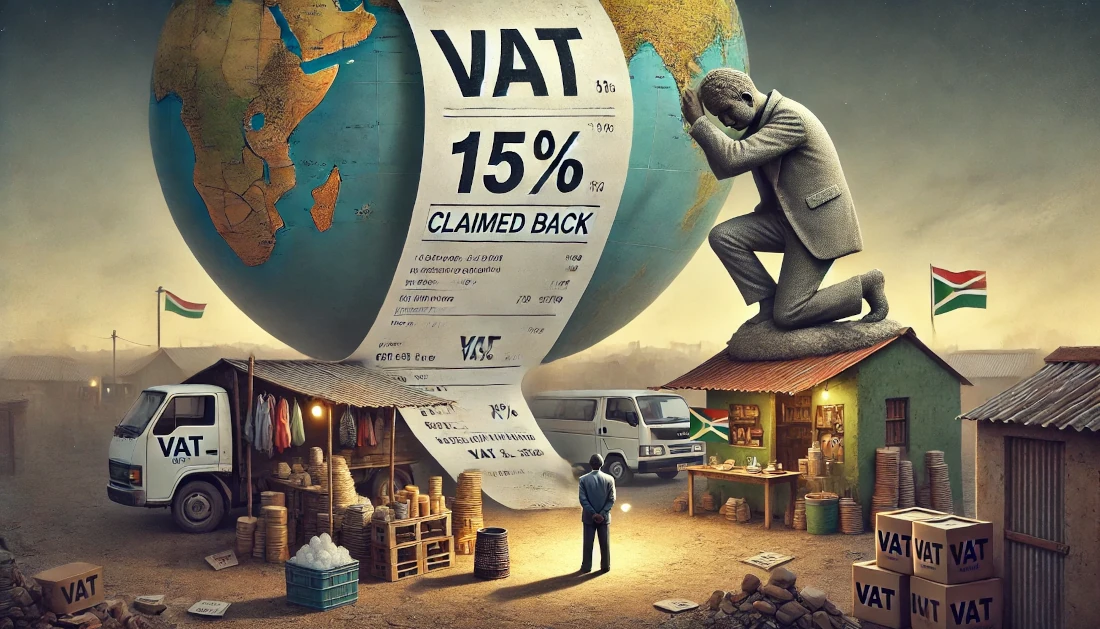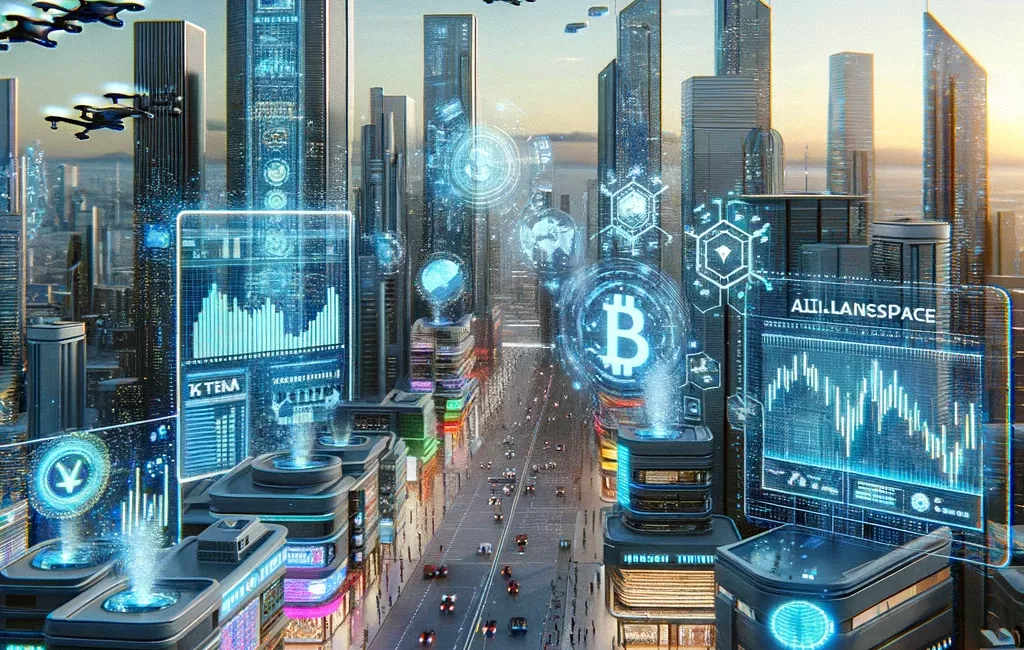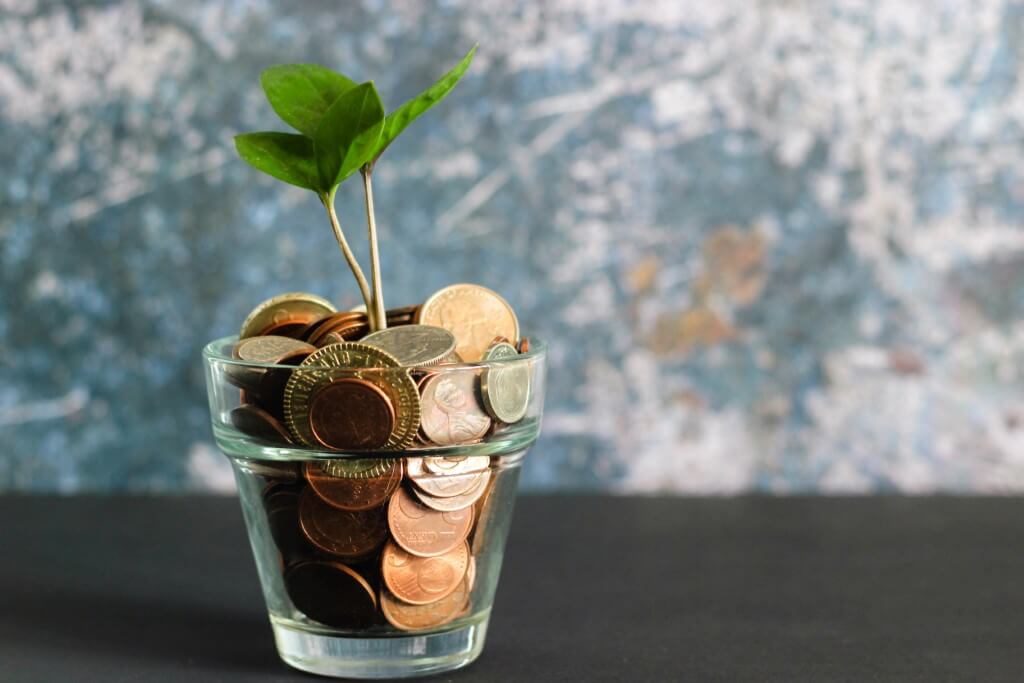When you Google “VAT scam” or “fraud,” the results are flooded with stories of people finding loopholes to exploit the tax system. But the system they’re gaming a system that’s already exploiting everyone, including you. VAT is baked into nearly every transaction you make, silently inflating the cost of living and draining your hard-earned money without you even realizing it.
For registered businesses, they charge it, pay it, and then claim it back. But for individuals and unregistered businesses? It’s a litteral one-way street. You pay the tax, and there’s no getting it back.
It creates a system where the burden falls harder on those who can’t work within the same rules as bigger businesses. Governments justify it by saying it funds public services, which is true, but the structure does seem tilted. Those who can’t claim back VAT are effectively paying more in the long run, while others get to offset those costs.
It’s not exactly a scam, but it does feel like a system that could use some rethinking to make it more balanced. Otherwise, it’s the same people losing out over and over again.
VAT isn’t just a tax system that feels stacked against the little guy, especially in a country like South Africa. SARS doesn’t exactly make it easy for micro-enterprises to compete. When unregistered businesses pay VAT on every purchase, that’s a 15% disadvantage for cost on goods right out of the gate. Meanwhile, their established competitors can reclaim that VAT, effectively cutting their costs.
Registering a business in South Africa is like signing up for a never-ending obstacle course. You’re immediately saddled with rules, reporting requirements and deadlines that are nearly impossible for small businesses to navigate without outside help (from tax consultants, which costs money micro enterprises simply do not have). Fall behind? You’re hit with fines, and not the small, slap-on-the-wrist kind. They’re the kind of penalties that can sink a business before it’s even had a chance to swim.
It’s not just VAT; the entire system feels designed to overwhelm. Instead of nurturing micro-enterprises, which are the backbone of any growing economy, SARS crushes them under a mountain of red tape and financial pressure.
And where does all that money go? Into a machine that often delivers very little in return for those who are struggling to stay afloat. It’s a vicious cycle, and it’s hard not to wonder if it’s broken by design.
Death and taxes
Life’s two certainties, but taxes often feel less like a duty and more like a system designed to take as much as possible without giving much back. In South Africa, where only a small percentage of the population pays income tax, VAT becomes this hidden burden that affects everyone, especially the poorest communities.
15% on every purchase might not seem like much to some, but for those already struggling, it’s a significant chunk. It’s not like income tax, which is at least tied to earnings. VAT is flat and unavoidable, whether you’re buying basic necessities or something more substantial. And most people in these communities don’t even realize they’re paying it, they just know their money doesn’t go as far.
The bigger issue is where this money ends up.
Instead of funding meaningful projects or providing relief to those who need it most, much of it seems to get lost in bureaucracy and inefficiency. The people footing the bill are often the ones who see the least return on their contributions. It’s frustrating and unfair, but changing such a deeply embedded system feels like an impossible task.
VAT isn’t just a local problem.
It’s a global framework that every government seems to buy into, and it’s been around so long, we barely question it anymore. Call it a relic of feudal systems where taxes were more about control than fairness. Over time, it’s just evolved into a more polished version of the same idea: take from the many and funnel it into the hands of the few, often with little accountability.
In places like the UK, Europe, or the US, VAT (or sales tax) operates differently. Most businesses are registered, and the system has enough oversight that businesses can claim their VAT back. It still hits individuals, but at least businesses are somewhat cushioned. The system works—not perfectly, but better.
South Africa and other developing nations?
Whole different story. Here, the majority of small businesses don’t even make it onto the VAT radar. They’re unregistered, operating informally, and stuck paying that 15% with no chance to recoup it. That’s not just a disadvantage—it’s a financial handicap. When your competitors are bigger, established businesses that can claim back VAT, you’re priced out of the game before you’ve even started.
It’s not really SARS pulling the strings—they’re just enforcing a system every government has embraced. But in countries like South Africa, where the economic gaps are already massive, VAT feels like another barrier keeping small businesses and lower-income communities from ever getting ahead.
The harsh truth is that governments often seem more focused on finding creative ways to extract revenue from their citizens than on creating systems that truly empower them. Taxes like VAT are a prime example—unavoidable, deeply embedded, and disproportionately hard on the average person and small businesses. It’s a constant cycle, and no matter how you approach it, there’s no real way to sidestep the system. You just keep paying, while the promises of what those taxes are meant to deliver often feel like they’re stuck in the fine print.
Here’s a list of the various ways SARS (South African Revenue Service) indirectly or directly collects taxes from our daily lives. It’s a mix of direct taxes, indirect taxes, and fees that form part of everyday expenses:
Income and Payroll Taxes
Personal Income Tax: For lower-income earners, PAYE reduces already meager wages, leaving them with little to cover essentials. Unlike higher earners, they can’t afford financial strategies to minimize tax.
Unemployment Insurance Fund (UIF): While UIF claims can be lifesaving during unemployment, ongoing contributions cut into take-home pay, which could otherwise be spent on necessities like food and transport.
Value-Added Tax (VAT)
Goods and Services: VAT adds 15% to almost everything, turning daily essentials like groceries and toiletries into financial hurdles for the poor, who don’t have the luxury of reclaiming VAT like businesses do.
Electricity and Water: Even basic utilities come with a VAT markup, making it harder for families in disadvantaged areas to keep the lights on or access clean water.
Telecommunications
Cellphone Contracts and Airtime: Mobile providers exploit pre-paid users—who are typically from lower-income groups—by charging exorbitant rates per minute or per MB of data. VAT adds to these already inflated costs. The system traps people in a cycle where losing access to airtime risks losing their number, which is often critical for jobs or emergencies.
Data and Internet Services: With VAT baked into data bundles, essential connectivity becomes a luxury. For poorer households, this limits access to education, job applications, and even government services now transitioning online.
Fuel Levies
General Fuel Levy: Every liter of fuel is taxed, inflating transport costs across the board. This disproportionately affects those relying on public transport or informal taxis, as fare hikes are passed down to consumers.
Road Accident Fund (RAF) Levy: Poorer communities see little benefit from the RAF, yet they pay for it with every liter of fuel purchased, adding costs that trickle into the price of goods and transport.
Essential Goods and Groceries
Cleaning Supplies: Everyday basics like soap and detergent carry a 15% VAT markup, forcing families to choose between hygiene and other necessities.
Non-Zero-Rated Foods: While staples like bread and maize are VAT-free, most other foods—including meat, cooking oil, and baby formula—carry VAT, making them increasingly unaffordable.
Healthcare
Non-Essential Medical Goods: VAT inflates the cost of over-the-counter medicines and supplements. For the poor, these “extras” often become unaffordable, forcing reliance on overburdened public clinics.
Environmental Taxes
Plastic Bag Levy: While seemingly minor, these charges add up for those who shop daily in smaller quantities, especially when every cent counts in already tight budgets.
Car-Related Taxes
Toll Fees: Tolls, which often include VAT, are unavoidable for commuters in many areas. For those living in townships or rural areas with limited transport options, these costs pile onto already expensive journeys to work.
Banking and Financial Transactions
Bank Fees on Prepaid Services: Lower-income users often pay VAT on every transaction, such as buying electricity or airtime, further stretching their limited funds.
Luxury Taxes That Aren’t So Luxurious
Dividends Tax: This tax on investment earnings may seem irrelevant to the poor, but it entrenches wealth inequality by reducing the potential for any wealth accumulation for lower-income investors trying to break out of poverty.
Capital Gains Tax: Similarly, CGT ensures that upward mobility through small investments or property sales is taxed, creating barriers to generational wealth transfer.
The idea that low-income groups escape taxation is a myth. Even without paying income tax, they’re tied into the same system. VAT inflates the cost of almost everything they buy, from food to utilities, while fuel levies drive up transport and goods prices. Even basic communication like airtime is taxed. These hidden costs hit the poorest hardest, leaving them paying more of their limited income without realizing it. This extensive network of taxes impacts nearly every transaction or aspect of life, no matter who ir where you are in South Africa, making it difficult to escape the reach of SARS.
Public Resistance
Public resistance has successfully stopped exploitative tax schemes in the past, with the e-toll saga being a prime example. The government attempted to enforce a tolling system on Gauteng’s highways, but widespread non-compliance and public outcry led to its eventual abandonment. However, the deals made behind closed doors left taxpayers saddled with massive debt to foreign companies, revealing the shady and reckless nature of such initiatives.
This victory showed the power of collective action but also highlighted the ongoing risk of new schemes being devised to recover those losses. South Africans must remain vigilant and lobby for greater transparency and fairness in taxation. The e-toll fiasco proves that people can push back, but it also serves as a warning that governments will continue to look for ways to shift their financial burdens onto citizens.
Another glaring example is the TV license system, which has become a symbol of outdated and exploitative taxation. Despite the national broadcaster, the SABC, mandating licenses for anyone owning a television, many South Africans have simply refused to pay for a service they don’t use or see value in. The broadcaster now resorts to sending threatening SMS messages and legal notices, but these rarely result in actual action. It’s a system that’s largely ignored, with people finding loopholes or simply refusing to comply.
This resistance showcases the public’s unwillingness to support taxes or fees they deem unjustified or irrelevant. Even though TV retailers are required to enforce the licensing system at the point of sale, many South Africans continue to push back. It’s another case of citizens rejecting a scheme that feels more like a forced handout to a mismanaged institution than a fair or necessary payment.
But those are the obvious ones.
VAT is The Invisible Scam Everyone Pays Without Question
The best scams are the ones where the victim doesn’t even realize they’re being scammed. VAT flies under the radar because it’s so simply ingrained in daily life and has a notoriously complex barrier to entry. We see it on invoices, pay it at checkout, and just accept it as part of the cost of living. Most people don’t even realize that this tax isn’t set in stone for everyone. In fact, those who are tax registered, primarily businesses that have the resources to can claim their VAT back.
But for the 99% of the population who aren’t registered, their money is gone for good.
To reclaim VAT, you need to be part of the system.
That means registering a company and navigating the maze of SARS compliance, filing returns, adhering to deadlines, and dealing with penalties if anything goes wrong, which is somthing most South Africans are not capable or willing to do. For the average person or small, informal business, this is a massive barrier. It keeps most people locked out of the benefits, while VAT quietly drains their pockets.
Financial freedom isn’t just about earning more or spending less, it’s about truly understanding the tax system and the hidden costs built into everyday life. In South Africa, where taxation impacts even the poorest households, it’s crucial to start questioning the taxes we pay, why we pay them, and where that money goes. By challenging the status quo and demanding transparency, South Africans can push for a system that serves the people instead of silently draining them. True financial freedom begins with awareness and the courage to ask tough questions about the shell game that taxation often becomes.

There’s an old saying, “The early bird catches the worm.” When it comes to retirement…

As trading platforms continue to evolve, investors will have access to a range of advanced…

As tax season looms, the quest for maximizing returns becomes a focal point for individuals…




